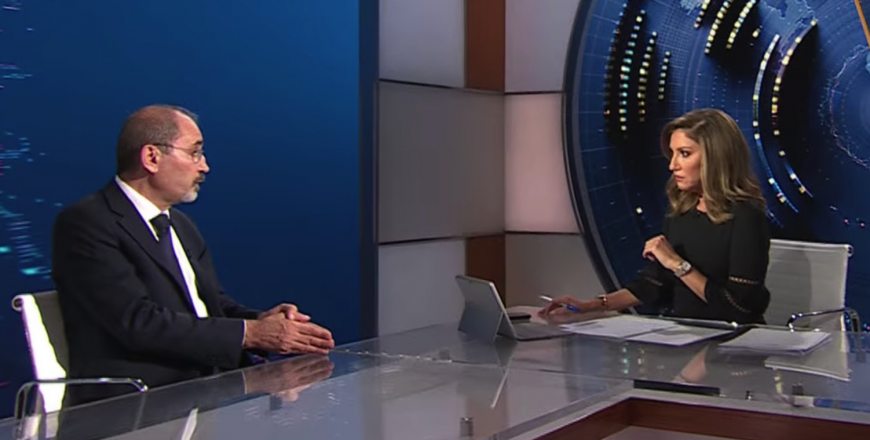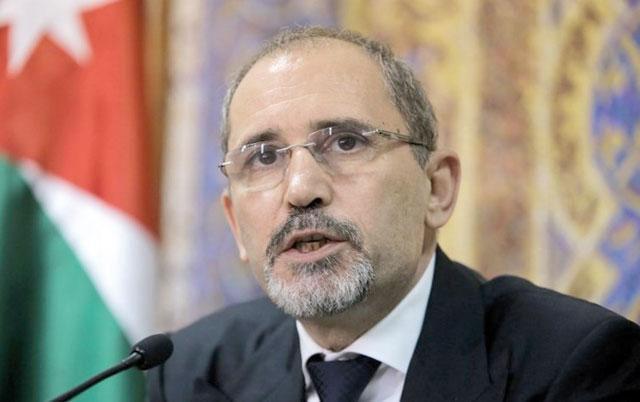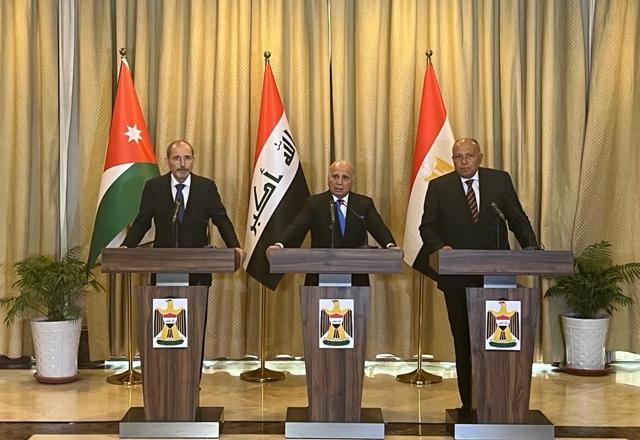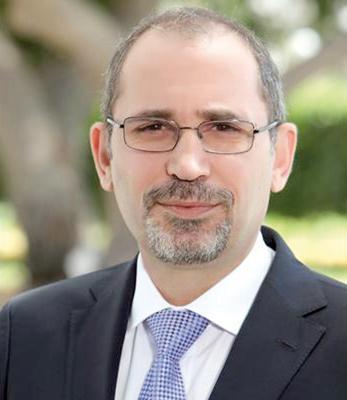You are here
Safadi highlights need for Arab defence, security mechanism
By JT - Jun 29,2022 - Last updated at Jun 30,2022

In this image grab taken from Al Jazeera TV, Deputy Prime Minister and Foreign Minister Ayman Safadi is seen speaking during an interview with the channel on Tuesday
AMMAN — Jordan supports any proposal meant to launch a systematic Arab institutional action mechanism capable of meeting common defence, security, and economic-related challenges, according to Deputy Prime Minister and Foreign Minister Ayman Safadi.
During an interview with Al Jazeera TV on Tuesday, Safadi highlighted the need for an Arab defence and security cooperation mechanism in accordance with a comprehensive concept to meet the common challenges, notably combating terrorism and achieving food and economic security.
Responding to a question if Jordan supports a military alliance in the Middle East, Safadi said: "His Majesty King Abdullah, in an interview, was asked about supporting the formation of a "NATO" in the region, not in the sense of an extension of the North Atlantic Treaty Organisation (NATO), but as a proposal for an Arab defence mechanism to face common challenges.
"Jordan has always been a supporter of each and every proposal that pushes for joint Arab institutional action to face the common challenges," he added.
He noted that Jordan is dealing within a defence framework, adding that King Abdullah said that the vision for such a mechanism must be very clear, and its objectives should be well defined.
The interviewer asked if a military security alliance is being created and if Jordan is part of it, with Safadi replying: "No. There's nothing."
Safadi said that there was a question if the Kingdom supports what the interviewer called "NATO", and what Jordan calls "a joint Arab action mechanism that ensures defensive coordination that guarantees security cooperation within the framework of the comprehensive concept of security", to meet economic, food security, terrorism-related challenges and address the regional crises.
The Kingdom's position is that this Arab mechanism is needed, he said, adding there is a joint defence treaty inked by Arab countries in 1950, but it is not activated.
Denying that a US-led military alliance involving Israel is listed on the agenda of US President Joe Biden's visit to the region next month, Safadi said that no proposals have been shared with Jordan to this end at this phase.
Safadi highlighted the coordination among the Arab countries whose leaders will meet Biden during his visit to the region to present an Arab proposal "in line with Arabs' needs and priorities to face what is coming".
The US is a key partner, and there are several regional challenges to be discussed, foremost of which is the Palestinian cause, in addition to the Syrian crisis, the issue of food security, among other challenges, he said.
He also stressed that the Palestinian cause is the core of the conflict, highlighting that the two-state solution is key to regional security and stability.
He also stressed the need to address the Syrian crisis and maintaining Gulf countries' security, highlighting the importance of joint Arab action to deal with food security, energy, development and economy-related issues.
Safadi also said that all Arab countries seek good relations with Iran, adding: “To reach this end, a dialogue that addresses all causes of tension is required, so as to let the next stage be a phase of openness and cooperation, based on a solid basis that prevents all that leads to crises.”
Related Articles
AMMAN — In an interview with Asharq News, Deputy Prime Minister and Foreign Minister Ayman Safadi on Thursday described the US as a key part
AMMAN — Deputy Prime Minister and Foreign Minister Ayman Safadi on Monday participated in the Jordanian-Egyptian-Iraqi tripartite meeting in
AMMAN — Deputy Prime Minister and Minister of Foreign Affairs Ayman Safadi on Wednesday called for taking practical steps to address the ref



















